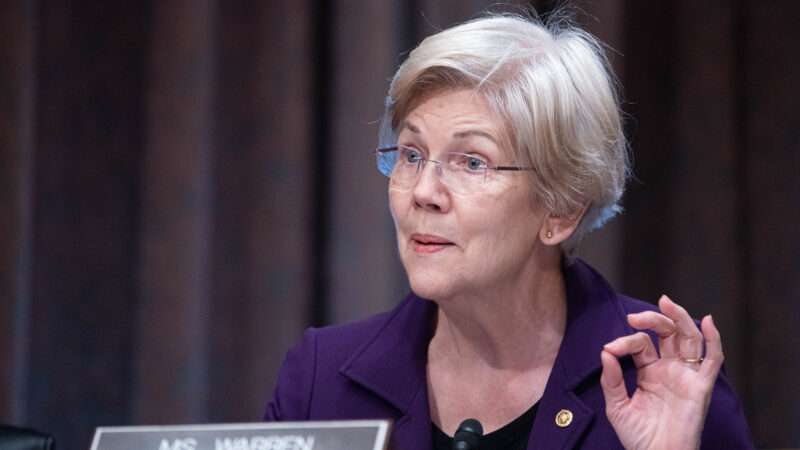
Subway might not be the only one that’s freshly baked. Sen. Elizabeth Warren (D–Mass.) thinks the government should investigate America’s alleged “sandwich shop monopoly.”
“We don’t need another private equity deal that could lead to higher food prices for consumers,” Warren tweeted a Sunday. She was responding to a Politico piece reporting that the Federal Trade Commission (FTC) is probing the private equity firm Roark Capital’s $10 billion acquisition of Subway.
We don't need another private equity deal that could lead to higher food prices for consumers. The @FTC is right to investigate whether the purchase of @SUBWAY by the same firm that owns @jimmyjohns and @McAlistersDeli creates a sandwich shop monopoly. https://t.co/mAFuuFYA5A
— Elizabeth Warren (@SenWarren) November 26, 2023
Roark already owns the sandwich-serving chains Arby’s, Jimmy Johns, McAlister’s Deli, and Schlotzky’s. Warren said that adding Subway to that list could create a “sandwich shop monopoly.”
The senator has made a career of crusading against such “monopolies,” regardless of how monopolististic they actually are or beneficial to consumers they might be. (Witness her war on Amazon-branded chargers.)
Her attack on America’s alleged “sandwich shop monopoly” scores new points for pettiness. It also shows just how broad (and therefore meaningless) the word “monopoly” has become in modern political discourse—and at Lina Kahn’s FTC.
It’s easy to assert that something is a monopoly if you narrow your focus on the market or product being discussed. There are, after all, only so many national fast-casual restaurant chains focused on serving deli sandwiches. If Roark snatches up Subway, then ownership of that particular ham slice of the market may in fact look pretty consolidated.
But from the casual consumer’s perspective, competition remains robust. There are endless options for getting a sandwich without paying a Roark-owned enterprise. Grocery stores, convenience stores, coffee shops, non-chain delis, and more all sell some variety of sandwich. And yes, non-Roark-owned national sandwich chains still exist.
Sandwiches, not being the most elaborate meal in the world, can also be made by most Americans at home.
On top of all that robust competition within the sandwich market, sandwich shops are in heated competition with all manner of other restaurants selling hamburgers (technically also a sandwich), hot dogs (debatably a sandwich), burritos (not a sandwich), salads, soups, Asian rice bowls, Mediterranean rice bowls, and more.
Consumers can, and do, flit between all of these options with ease. Even if Roark’s acquisition of Subway gives it a stranglehold over the sandwich market, its ability to raise prices on consumers will still be hemmed in by this dizzying array of additional lunchtime options.
The original purpose of antitrust laws was to prevent the Cornelius Vanderbilts of the world from using their ownership of the commanding heights of the economy to raise prices and gouge consumers. Libertarians have long criticized such statutes, arguing that an existing monopoly can’t sustainably charge consumers above-market prices as long as new competitors armed with new technologies are allowed to undercut them. And indeed, even tech companies that once seemed invincible are now being laid low by competitive pressures.
If markets can work in that arena, we surely don’t need the government to police who owns businesses that specialize in putting cold cuts between slices of bread.
The post Elizabeth Warren Wants the Government To Investigate America's 'Sandwich Shop Monopoly' appeared first on Reason.com.
from Latest https://ift.tt/S6tkEWi
via IFTTT